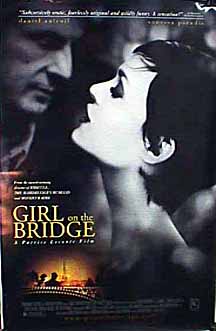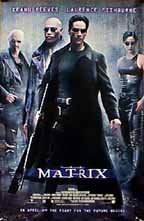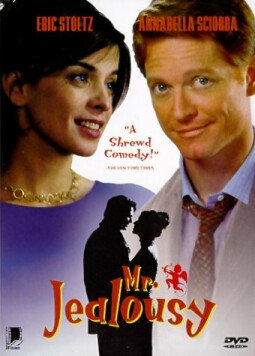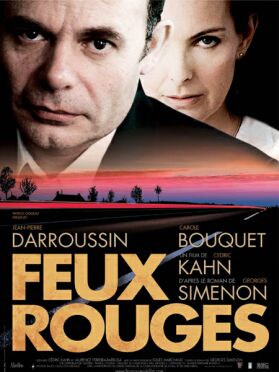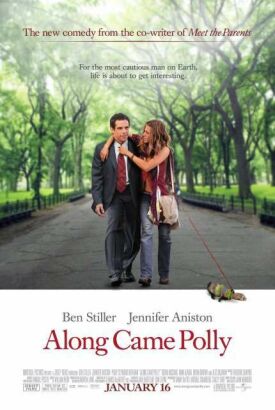Fille sur le Pont, La (The Girl on the Bridge)
The Girl on the Bridge (La Fille sur le Pont), written by Serge Frydman and directed by Patrice Leconte, I take to be a sort of parable or allegory of married love. In order to accentuate its rather spooky and tangential relation to reality, it is shot in black and white and makes use of some Fellini-like tricks to suggest a whole sort of parallel universe to the one we are used to, rather than just a literary extrapolation from it. It tells the story of a washed-up circus knife-thrower called Gabor (Daniel Auteuil) who encounters a suicidal girl, Adele (Vanessa Paradis), who is ready to throw herself off a bridge. He rescues her, makes her his target (what has she got to lose, after all?) and soon, inspired by the luck she brings him, is once again a big star—until she leaves him for a more conventional sort of relationship.
For all the fairly obvious sexual imagery of a scantily-clad young girl bound passively but ecstatically to a target and all-but penetrated by her mysterious partner’s unembarrassedly phallic knives, the two do not become lovers. Or not in any of the usual senses of the terms. “I never sleep with my targets,” Gabor tells her, but the bond between them clearly goes beyond the sexual—and all the better for that, now that the sexual itself has become so much a matter of routine. Sex in the movies having become an inevitable cliché, the odd sort of bond between these two, especially in the context of the slightly magical world they inhabit, amounts almost to a re-invention of sexual intimacy.
This is perhaps necessary in order for anything new to be said about it. The chastity that prevents Gabor and Adele from enjoying sex (with each other) in the usual way, both contributes to the beautifully recorded intensity of the knife-throwing sessions, which set up what turns out to be a more unbreakable bond between them, and presents us in the starkest terms with what makes that bond what it is—namely the giving and receiving of trust. The image of the knife-thrower’s target is not only a strikingly visual and emblematic representation of that trust in itself, but it is also capable of reminding us again of how central to the experience of love trust always used to be, before the sexual revolution made men and women alike into sexual adventurers as a mere matter of course.
I think Leconte detracts a bit from his more serious theme by his use of some of the techniques of “magic realism”—as for instance in showing Gabor and Adele communicating with each other by means of mental telepathy. But this is a minor consideration and the point of the film does not depend on it, or on other, rather gimmicky workings out of the theme. The central image of trust, and the constant and unremitting terror which so often stands in the way of it for women, are what holds our attention, along with the rash promises that they have no idea how to keep which men give in return. “I throw blind,” says Gabor, desperate for a job, though he has never tried throwing blind before. “With your looks and my skill, we’ll kill them,” he assures Adele.
“Kill whom?” she asks.
But luck is with them, and it is a film as much about luck as it is about trust. In a documentary-style interview (by a therapist? a journalist?) with Adele that begins the film, she talks about her life before meeting Gabor, how she would “never pick the lucky number.” Bad luck, she says, “is like an ear for music. Either you have it or you don’t.” Gabor’s luck was out too, before they met, and it was never quite clear who rescued whom on that bridge. Somehow their coming together made them both lucky, but that was not just by chance. “Luck?” says Gabor to his new protégé. “You think you catch it like a cold? You have to have faith, willpower.” You could say, in fact, that it’s just trust looked at from another angle, as is learning to lose, “or else you’ll take winning for granted.”
Such thoughts are not presented to us in any kind of moralistic or didactic fashion, but as in so many of the best films, they help to send us away from the cinema momentarily convinced that at last we know how to live.
Discover more from James Bowman
Subscribe to get the latest posts to your email.

